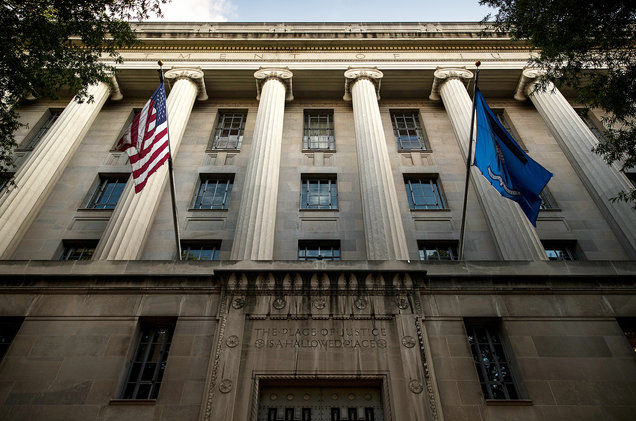Court of Appeals Sides With Songwriters, Publishers on Fractionalized Licensing: 'This Is a Mass
- Ed Christman
- Dec 19, 2017
- 4 min read
As the music industry heads into the holiday season, the U.S. Second Circuit Court of Appeals just gave songwriters and music publishers a gift with its decision that the consent decree allows fractionalized licensing.
Fractionalized licensing means that in cases of songs written by multiple songwriters music users need to get a license from all of the songwriters, or their representatives. The U.S. Dept. of Justice had said that the industry had been misinterpreting the consent decree by doing fractionalized licensing and instead insisted that the agreement called for full-works licensing, which means that a music user only needed a license from one of the songwriters.

The Justice Department Quietly Backs Away From a Hard Line on Music Licensing
When the DOJ informed the industry of the full-works licensing requirement, BMI, Broadcast Music Inc,. sued the DOJ in the BMI rate court and Judge Louis Stanton ruled that the consent decree neither bars fractional licensing nor requires full-work licensing. But the DOJ appealed it to the Second Circuit in the Southern District of New York; and after hearing verbal arguments on Dec. 1, issued their ruling today.
Circuit Judges Dennis Jacobs, Reena Raggi, and Christopher Droney affirmed Judge Stanton's ruling. "This appeal begins and ends with the language of the consent decree," according to the summary order issued by the Judges. "It is a well-established principle that the language of a consent decree must dictate what a party is required to do and what it must refrain from doing."
Yet, the Judges noted, "The decree does not address the issue of fractional versus full work licensing, and the parties agree that the issue did not arise at the time of the 1966 and 1994 amendments."
Consequently, the Circuit Judges cited existing case law noting "the scope of a consent decree must be discerned within its four corners; and that the courts “must abide by the express terms of a consent decree and may not impose additional requirements or supplementary obligations on the parties," -- even to fulfill the purposes of the decree more effectively."
Although the relief sought by the DOJ may be in keeping with the purposes of the antitrust laws, "we do not believe that it is supported by the terms of the consent decree." So even though the DOJ asked the Judges to read additional requirements into the consent decree to advance pro-competitive objectives, case law forecloses the Circuit Judges from doing so, the document stated.
"This is a massive victory for songwriters, composers, music publishers and the entire industry," BMI president Mike O'Neill said in a statement. "We have said from the very beginning that BMI's consent decree allowed for fractional licensing, and we are incredibly gratified that Judge Stanton and the Second Circuit agreed with our position. We thank all the songwriters, composers, publishers and organizations who supported us throughout this process, which unfortunately, has been a nearly two-year distraction from our original intent which was to update our outdated consent decree and modernize music licensing. We look forward to our continued efforts to protect and grow the value of music."
ASCAP, which sat out the legal proceedings while concentrating on lobbying for U.S. legislation that addresses all publisher and songwriting issues, hailed the decision.
"The Second Circuit’s ruling today is an important victory for music creators across the country," ASCAP CEO Elizabeth Matthews said in a statement. "The Court affirms what we have known all along, that the right of public performance allows for the fractional licensing of musical works in our repertories, and the consent decrees do not limit that right. ASCAP and BMI can now continue to offer blanket licenses to our hundreds of thousands of licensees that contain all the shares of works that are in our repertories and the livelihoods of our 650,000 ASCAP songwriter, composer and publisher members can continue to depend on a strong collective licensing system. ASCAP remains committed to making music licensing more efficient, effective and transparent for today’s digital music marketplace."
The decision also played well in Washington, where the NMPA is headquartered. "Today’s affirmation of Judge Stanton’s decision is vindication for all songwriters and music publishers that the Justice Department overreached when it wrongly claimed that split works should be licensed on a 100 percent basis," NMPA president & CEO David Israelite said in a statement. "DOJ’s disastrous interpretation was an attack on songwriters and we congratulate BMI and the industry effort on successfully fighting against this massive government overreach. We are encouraged it is a new day at the Justice Department with new leadership that we trust will respect the rights of songwriters and ultimately address the larger problems with the outdated WWII-era consent decrees that continue to harm music creators."
However, while today's decision counts as a victory for songwriters and publishers, whether the issue of full works licensing versus fractional licensing is fully resolved is now up to the DOJ.
The Circuit Judges noted that if DOJ still had anti-competitive concerns, "it is free to move to amend the decree or sue under the Sherman Act in a separate proceeding." Or the DOJ can appeal the Second Circuit ruling to the Supreme Court.
Before the DOJ contemplates going there, Israelite extended an olive branch: "We are encouraged it is a new day at the Justice Department with new leadership that we trust will respect the rights of songwriters and ultimately address the larger problems with the outdated WWII-era consent decrees that continue to harm music creators," he said in a statement.
Source:
https://www.billboard.com/articles/business/8071046/court-appeals-fractionalized-licensing-songwriters-publishers-reactions
----------
Notice: Reprint of the article is "made" with All Rights Reserved, "without prejudice" 1.207.7 in c/o Starbooque* Entertainment, and hereby disclaim the validity or information presented in this article and equally made and endorsed "without recourse to "action." "without dishonor"






























Comments